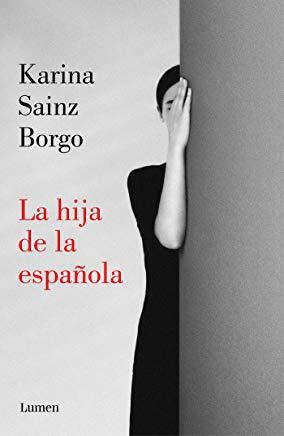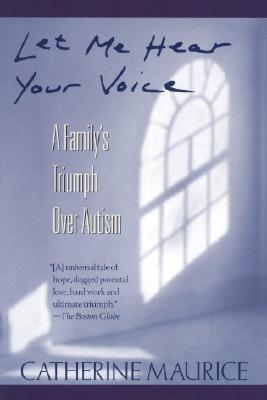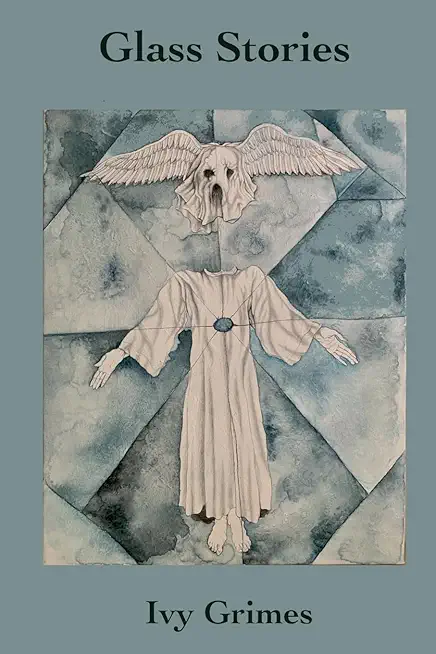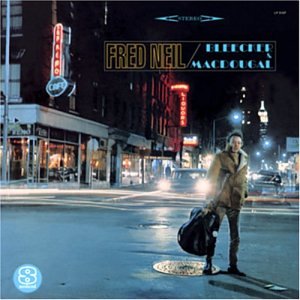
description
9SE PUEDE PERDER TODO. SE PUEDE EMPEZAR DE NUEVO. SOLO SI ERES OTRA. Ganadora del Premio Grand Prix Madame Figaro a Novela Extranjera.
La hija de la española, la fascinante novela debut de la periodista venezolana Karina Sainz Borgo, saca a la luz la desgarradora realidad de la vida actual en ese turbulento país sudamericano. Con libre intensidad, Borgo crea una narrativa inquietante en primera persona, que da testimonio de la anarquía distópica que ha descendido sobre una nación alguna vez armoniosa y su gente. Llamando la atención en todo el mundo, con una publicación en más de 23 países, esta penetrante novela introduce una voz femenina esencial al coro rico de la literatura latinoamericana. Esta es una historia con vocación universal: el tema de la pérdida, la supervivencia y la culpa del sobreviviente. Adelaida Falcón, una maestra caraqueña, fallece tras una larga enfermedad. Su hija Adelaida, de treinta y ocho años, no tiene a nadie y vive en una ciudad donde la violencia marca el ritmo diario de la existencia. Poco tiempo después del entierro, encuentra su casa tomada por un grupo de mujeres a las órdenes de la Mariscala. Llama a la puerta de su vecina sin hallar respuesta: Aurora Peralta, a quien todos llaman «la hija de la española , ha muerto. Encima de la mesa del salón, una carta le comunica que le han concedido el pasaporte español. Adelaida solo tiene que deshacerse del cadáver que yace en el suelo y usurpar la identidad de su vecina para huir del infierno. La hija de la española es el retrato de una mujer que escapa de todos los estereotipos enfrentada a una situación extrema. Con su primera novela, la periodista Karina Sainz Borgo, se ha convertido en la gran noticia literaria del año. ENGLISH DESCRIPTION "Sainz Borgo's excellent debut is a harrowing account of one woman grieving the recent death of her mother while attempting to survive the political unrest in Caracas, Venezuela." - starred Publishers Weekly
"A propulsively written, harrowing story, as desperate as it is timely."
starred Kirkus Review
"Borgo's beautiful prose belies the brutal reality of the breakdown in civil society she lays bare in this powerful literary look at strife-torn Venezuela." - Booklist It would be night in Caracas, the spellbinding debut novel by Venezuelan-born journalist Karina Sainz Borgo, brings to light the harrowing reality of present-day life in that turbulent, troubled South American country. With spare intensity, Borgo creates a haunting first-person narrative, that bears witness to the dystopian lawlessness that has descended upon a once harmonious nation and its people. Gaining attention around the world, with publication set in more than 23 countries, the penetrating novel introduces an essential female voice to the rich chorus of Latin American literature. This is a story with a universal vocation--the subject of loss, survival and the fault of the survivor. The day Adelaida Falcón buries her mother is like any other in the capital city--marked by revolutionary violence, economic deprivation, and an abiding sense of fear. Adelaida, who waged the best battle she could for her mother, procuring black market chemotherapy medications and shielding the dying woman from the worst daily realities, is now all but alone in the world. In the apartment she shared with her mother for more than thirty years, Adelaida mitigates her grief by reflecting on the more pleasant days of childhood, when life was normal and she and her mother were an inseparable duo that did not need the rest of the world's approval or help. But, in the streets outside the apartment, violence is a constant, and even duct tape around the windows cannot keep the nausea-inducing smell of tear gas from permeating every room. Like everyone in Caracas, Adelaida's daily attentions are inordinately focused on procuring the basics of survival, all heavily rationed and, when available at all, exorbitantly priced in the inflationary nightmare the national economy has become. One day, she returns home to find the locks on her apartment changed. A group of looters and black marketeers has taken over her home and she is powerless to defend what is rightfully hers. When she discovers that her neighbor, Aurora Peralta, lies dead in the apartment next door, Adelaida furtively disposes of the body and takes refuge there. But she is soon not alone, taking a great risk sheltering a friend's brother, who has escaped his forced conscription by the insurgents. Adelaida will come to learn that Aurora was a dual citizen of Venezuela and Spain, and had begun the process of emigrating back to Europe before she died. Adelaida realizes her chance of survival may rest in masquerading as the dead woman, but with the conflagration flaring ever nearer, the perilous plan to assume Aurora's identity grows more complicated by the hour. And despite the city's current horrors, the possibility of leaving behind her once-beloved Caracas, and all the memories it holds, comes at a heavy emotional costs as well. Drawing on a combination of some of the author's own experiences before leaving her homeland for Madrid and news reports, IT WOULD BE NIGHT IN CARACAS is an urgent work of fiction that illuminates a real national crisis within the framework of an impossible-to-put-down literary narrative.
La hija de la española, la fascinante novela debut de la periodista venezolana Karina Sainz Borgo, saca a la luz la desgarradora realidad de la vida actual en ese turbulento país sudamericano. Con libre intensidad, Borgo crea una narrativa inquietante en primera persona, que da testimonio de la anarquía distópica que ha descendido sobre una nación alguna vez armoniosa y su gente. Llamando la atención en todo el mundo, con una publicación en más de 23 países, esta penetrante novela introduce una voz femenina esencial al coro rico de la literatura latinoamericana. Esta es una historia con vocación universal: el tema de la pérdida, la supervivencia y la culpa del sobreviviente. Adelaida Falcón, una maestra caraqueña, fallece tras una larga enfermedad. Su hija Adelaida, de treinta y ocho años, no tiene a nadie y vive en una ciudad donde la violencia marca el ritmo diario de la existencia. Poco tiempo después del entierro, encuentra su casa tomada por un grupo de mujeres a las órdenes de la Mariscala. Llama a la puerta de su vecina sin hallar respuesta: Aurora Peralta, a quien todos llaman «la hija de la española , ha muerto. Encima de la mesa del salón, una carta le comunica que le han concedido el pasaporte español. Adelaida solo tiene que deshacerse del cadáver que yace en el suelo y usurpar la identidad de su vecina para huir del infierno. La hija de la española es el retrato de una mujer que escapa de todos los estereotipos enfrentada a una situación extrema. Con su primera novela, la periodista Karina Sainz Borgo, se ha convertido en la gran noticia literaria del año. ENGLISH DESCRIPTION "Sainz Borgo's excellent debut is a harrowing account of one woman grieving the recent death of her mother while attempting to survive the political unrest in Caracas, Venezuela." - starred Publishers Weekly
"A propulsively written, harrowing story, as desperate as it is timely."
starred Kirkus Review
"Borgo's beautiful prose belies the brutal reality of the breakdown in civil society she lays bare in this powerful literary look at strife-torn Venezuela." - Booklist It would be night in Caracas, the spellbinding debut novel by Venezuelan-born journalist Karina Sainz Borgo, brings to light the harrowing reality of present-day life in that turbulent, troubled South American country. With spare intensity, Borgo creates a haunting first-person narrative, that bears witness to the dystopian lawlessness that has descended upon a once harmonious nation and its people. Gaining attention around the world, with publication set in more than 23 countries, the penetrating novel introduces an essential female voice to the rich chorus of Latin American literature. This is a story with a universal vocation--the subject of loss, survival and the fault of the survivor. The day Adelaida Falcón buries her mother is like any other in the capital city--marked by revolutionary violence, economic deprivation, and an abiding sense of fear. Adelaida, who waged the best battle she could for her mother, procuring black market chemotherapy medications and shielding the dying woman from the worst daily realities, is now all but alone in the world. In the apartment she shared with her mother for more than thirty years, Adelaida mitigates her grief by reflecting on the more pleasant days of childhood, when life was normal and she and her mother were an inseparable duo that did not need the rest of the world's approval or help. But, in the streets outside the apartment, violence is a constant, and even duct tape around the windows cannot keep the nausea-inducing smell of tear gas from permeating every room. Like everyone in Caracas, Adelaida's daily attentions are inordinately focused on procuring the basics of survival, all heavily rationed and, when available at all, exorbitantly priced in the inflationary nightmare the national economy has become. One day, she returns home to find the locks on her apartment changed. A group of looters and black marketeers has taken over her home and she is powerless to defend what is rightfully hers. When she discovers that her neighbor, Aurora Peralta, lies dead in the apartment next door, Adelaida furtively disposes of the body and takes refuge there. But she is soon not alone, taking a great risk sheltering a friend's brother, who has escaped his forced conscription by the insurgents. Adelaida will come to learn that Aurora was a dual citizen of Venezuela and Spain, and had begun the process of emigrating back to Europe before she died. Adelaida realizes her chance of survival may rest in masquerading as the dead woman, but with the conflagration flaring ever nearer, the perilous plan to assume Aurora's identity grows more complicated by the hour. And despite the city's current horrors, the possibility of leaving behind her once-beloved Caracas, and all the memories it holds, comes at a heavy emotional costs as well. Drawing on a combination of some of the author's own experiences before leaving her homeland for Madrid and news reports, IT WOULD BE NIGHT IN CARACAS is an urgent work of fiction that illuminates a real national crisis within the framework of an impossible-to-put-down literary narrative.
member goods
No member items were found under this heading.
Return Policy
All sales are final
Shipping
No special shipping considerations available.
Shipping fees determined at checkout.







